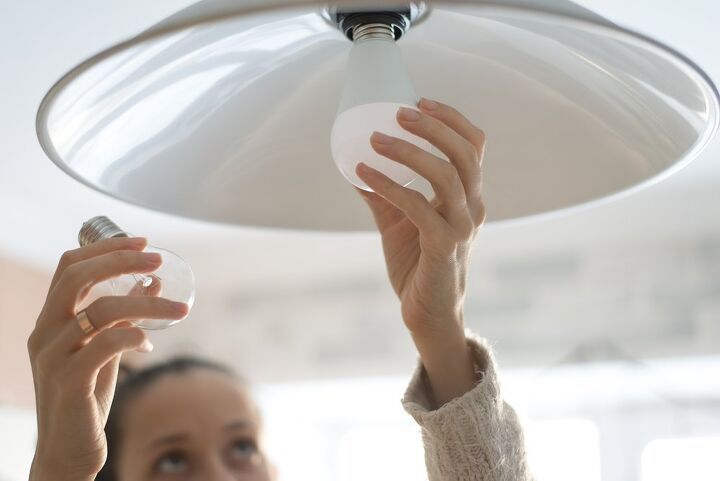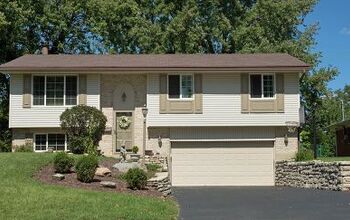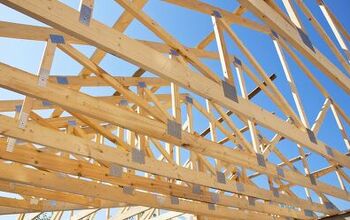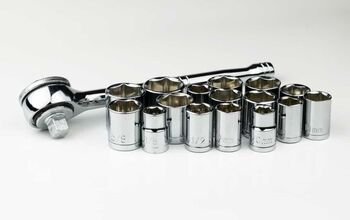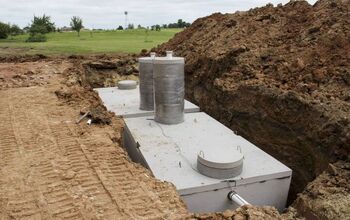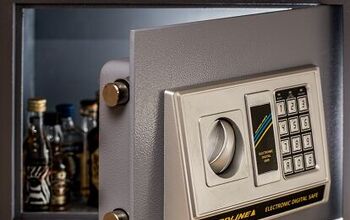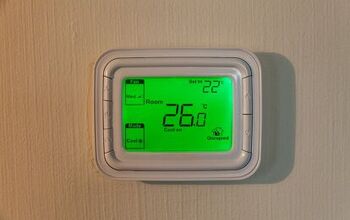What Happens When You Use A Higher Watt Light Bulb Than Recommended?

Any type of electrical work is confusing and daunting to those that aren’t experts. Even something as simple as choosing the right light bulb can be difficult for a homeowner if you are unfamiliar with wattage. So, what happens when you put a higher-watt light bulb in a fixture than recommended?
You risk arc faults and electrical damage when you use a higher-watt light bulb than recommended. This can lead to a house fire as the electrical demand can cause the wires to burn and catch on fire. At the very least, the light bulb will likely burn out and possibly cause permanent damage to the fixture.
Always check the socket inside of a light fixture to see what the recommended wattage is to avoid damage. The last thing that you want to do is cause an arc fault that even your circuit breaker may miss. Follow along as we explore what happens when you put a higher-watt light bulb than recommended.
Can You Mix Different Wattage Light Bulbs?
You can mix different wattage light bulbs within a fixture in many cases, but it’s not recommended. It will cause a disparity between the sockets which can cause the fixture to underperform and possibly suffer damage. With that said, using a higher-watt light bulb than recommended can carry serious risks that you should avoid at all costs.
There are several serious risks involved with putting a higher-watt light bulb in a fixture than recommended. Let’s take a look at what can happen when you use a light bulb with too high of wattage in a fixture that can’t handle it.
Electrical Damage
Electrical damage should be your biggest concern if you put a higher-watt light bulb in a socket. This can damage the light fixture and it may not ever work again unless you get it repaired. However, repairing a specific fixture is often more trouble than it’s worth if it’s a simple lamp or overhead light.
It’s generally worthwhile to safely dispose of the bulb and light fixture if it is completely damaged. This is critical because there may be underlying electrical issues even if the fixture is working at a diminished capacity.
The Bulb Will Burn Out
The least severe result of using a higher-watt light bulb than recommended is that the bulb will burn out. You will often hear it burn out even if you don’t notice the light dimming. This happens because the high-wattage bulb places too great of a demand on the fixture.
Halogen and incandescent bulbs, in particular, will quickly burn out. The fixture won’t be able to keep up with the demand and the bulb will burn out. When this happens, you need to turn off the light fixture and remove the bulb. You can safely place another bulb in the socket as long as it is the proper wattage without worrying about electrical damage in most cases.
Arc Faults
Using a high-wattage bulb for a fixture that can’t handle it can lead to an arc fault which is quite dangerous. An arc fault is a high burst of electrical energy among multiple conductors that can create heat within an appliance or fixture. The heat and burst of power can cause wires within a fixture to come loose, break down, and even burn.
This doesn’t always necessarily happen right away, but it can happen over time. However, sometimes the results are immediate, and your circuit breaker may not be able to help you. A circuit breaker often won’t trip when an arc fault occurs in many cases which makes the situation more dangerous.
The easiest way to avoid an arc fault with a light fixture is to figure out what kind of bulb it needs before you place one in the socket. Arc faults don’t always lead to fires, but that is the most serious outcome and it’s worth avoiding at all costs.
Fire
The most serious risk of using a higher-watt light bulb than recommended is that a fire could start. A bulb with too high of a wattage demand can cause the wires to burn. Naturally, the burning can spread and turn into a larger house fire that can cause irreparable and expensive damage throughout your home.
You will often notice a distinct smell when wires are burning that can tell you to shut off the fixture and remove the bulb. However, if it has already turned into a fire, then you need to get out of the house for safety reasons. An electrical fire smells unlike anything else and is more akin to burning and melting plastic than anything else.
Can I Use a 100w LED Bulb in a 60w Socket?
You can use a 100-watt equivalent LED bulb in a 60-watt socket, but there are a few things to consider. The most important factor is how much wattage the bulb consumes. Just because an LED bulb is 100 watts doesn’t mean that it consumes 100 watts.
Carefully read the label or even contact the manufacturer if you are unsure of how much wattage the light bulb consumes. For example, a 100-watt light bulb may only consume 60 watts or less while running. In that case, you can safely use a 100-watt LED bulb in a 60-watt socket without a problem.
Can I Use a Higher Wattage Halogen Bulb?
You should not use a higher-wattage halogen bulb than recommended. Halogen bulbs burn hotter than LEDs and they will burn out much faster. They are also bad for the environment and you won’t be able to buy them after August 1st, 2023.
Halogen bulbs work by generating heat which is inefficient because so much of the energy goes into that. The combination of the filament and the gas that fills the bulb makes halogen bulbs get hotter than the alternatives. Incandescent bulbs primarily work the same way and are also a poor alternative to LED bulbs.
How Do I Know How Many Watts My Light Bulb Is?
Read the label on your light bulb to know how many watts it is. Otherwise, you can read the label within the socket of the fixture if the label on the bulb itself is worn down. Stick with a 60-watt light bulb or lower if you’re not sure what the fixture requires. This is a standard wattage for many simple light fixtures such as overhead lights and lamps.
Summing it Up
You can cause serious electrical damage when you use a higher-watt light bulb than recommended. Either the light bulb will burn out or the entire fixture can suffer electrical damage and may become unusable. More serious risks include arc faults which are dangerous and difficult for many circuit breakers to detect in extreme cases.
This can cause a potential house fire as the wires within the light fixture can catch on fire. The fire can spread and that is the worst-case scenario if you use a high-watt light bulb when you shouldn’t. Always refer to the label inside of the socket on your light fixture so that you don’t exceed the recommended limit.
Related Guides

Nick Durante is a professional writer with a primary focus on home improvement. When he is not writing about home improvement or taking on projects around the house, he likes to read and create art. He is always looking towards the newest trends in home improvement.
More by Nick Durante



